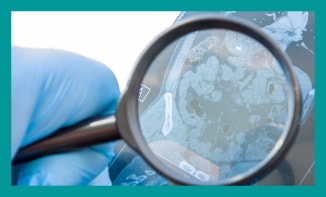Crohn’s Disease Treatment
 Crohn’s Disease Treatment: Our Crohn’s Disease treatment at our Guardian featured clinic addresses the underlying issues and not just the symptoms. Treatment is carefully tailored to meet each patient’s unique needs. We do not have a one size fits all approach.
Crohn’s Disease Treatment: Our Crohn’s Disease treatment at our Guardian featured clinic addresses the underlying issues and not just the symptoms. Treatment is carefully tailored to meet each patient’s unique needs. We do not have a one size fits all approach.
What is Crohn’s disease?
Crohn’s disease causes inflammation, swelling and irritation of any part of the digestive tract. Most commonly affected is the end of the small intestine, the ileum. The inflammation extends deep into the lining of the affected part of the digestive tract. This can cause pain and can make the intestine empty frequently, resulting in diarrhoea.
Ongoing inflammation may produce scar tissue that builds up inside the intestine to create a stricture, a narrowed passageway that can slow the movement of food through the intestine, causing pain or cramps.
Crohn’s disease is an inflammatory bowel disease (IBD) and can be difficult to diagnose because its symptoms are similar to other intestinal disorders, such as ulcerative colitis and other IBDs; and irritable bowel syndrome (IBS). Both ulcerative colitis and Crohn’s Disease cause abdominal pain and diarrhoea.
Who gets Crohn’s Disease?
Crohn’s disease affects men and women equally. It seems to run in some families. People with Crohn’s disease may have a brother or sister with some form of IBD. Crohn’s disease occurs in people of all ages, but it most commonly starts in people between the ages of 13 and 30. Men and women who smoke are more likely than nonsmokers to develop Crohn’s disease.
What causes Crohn’s disease?
In mainstream medicine, the cause of Crohn’s disease is unknown, but researchers believe it is the result of an abnormal reaction by the body’s immune system. Normally, the immune system protects people from infection by identifying and destroying bacteria, viruses, or other potentially harmful foreign substances. Researchers believe that in Crohn’s disease the immune system attacks bacteria, foods, and other substances that are actually harmless or beneficial. During this process, white blood cells accumulate in the lining of the intestines, producing chronic inflammation, which leads to ulcers, or sores, and injury to the intestines.
Researchers have found that high levels of a protein called tumour necrosis factor (TNF), which is produced by the immune system, are present in people with Crohn’s disease. However, researchers do not know whether increased levels of TNF and abnormal functioning of the immune system are the cause or result Crohn’s disease. Research shows that the inflammation seen in the digestive tract of people with Crohn’s disease involves several factors – inherited genes, the immune system; and the environment.
What are the symptoms of Crohn’s disease?
The most common symptoms of Crohn’s disease are abdominal pain, often in the lower right area, and diarrhoea. Passing blood, weight loss, and fever may also occur. Bleeding may be persistent, leading to anaemia. The range and severity of symptoms varies.
What are the complications of Crohn’s disease?
The most common complication of Crohn’s disease is a blockage caused by swelling and scar tissue. Crohn’s disease may also cause ulcers that tunnel through the affected area into surrounding tissues. The tunnels, called fistulas, are a common complication — especially in the areas around the anus and rectum—and often become infected.
People with Crohn’s disease, particularly if they have been treated with steroid medications, may have weakness of their bones – osteoporosis or osteomalacia. Some people with Crohn’s disease may have restless legs syndrome—extreme leg discomfort while sitting or lying down. Other complications include arthritis, skin problems, inflammation in the eyes or mouth, kidney stones, gallstones, or diseases related to the liver.
What is the mainstream medical Crohn’s disease treatment?
The mainstream medical treatment for Crohn’s disease is anti-inflammatory medications. Most people are first treated with medications containing mesalamine, a substance that helps control inflammation. Sulfasalazine is the most commonly used of these medications. People who do not benefit from sulfasalazine or who cannot tolerate it may be put on other mesalamine-containing medications, known as 5-aminosalicylic acid (5-ASA) agents, such as Asacol, Dipentum, or Pentasa.
Cortisone or steroids – these are effective at reducing inflammation. Prednisone and budesonide are generic names of two corticosteroids.
Immunosuppressive medications are also used to treat Crohn’s disease. The most commonly prescribed medications are 6-mercaptopurine and azathioprine. Immunosuppressive medications work by blocking the immune reaction that contributes to inflammation.
Surgery – About two-thirds of people with Crohn’s disease have surgery suggested to them. Surgery is usually carried out to remove part of the intestine but it does not eliminate the disease. People with Crohn’s disease commonly need more than one operation because inflammation tends to return to the area next to where the diseased intestine was removed because the underlying issues fuelling the inflammation were not diagnosed or addressed.
What is the Crohn’s Disease treatment at Harley Street IBS & Autoimmune Clinic?
The aim is to diagnose any underlying health issues, which may have given rise to Crohn’s Disease, and address them. Dietary guidance is given to help support the treatment and help reduce the inflammation. The Crohn’s Disease treatment is formulated based on the patient’s underlying health issues, using personalised prescribing with a Functional Medicine approach. Patients report that this personalised approach works better than a one size fits all approach. Patients are required to have undergone thorough medical investigation through colonoscopy etc to attain a formal diagnosis of Crohn’s disease.
We also diagnose and address any allergies, which are so often part of this condition.
References
Monitoring of small bowel Crohn’s disease.
If you would like an appointment for Crohn’s Disease treatment
Contact Deborah’s Medical Secretary for an appointment